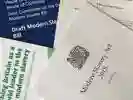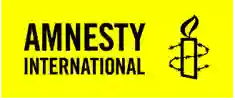
Human wrongs. Human rights. Together we can change the story.
Our world-leading Institute is at the forefront of researching and tackling slavery, giving voice to the exploited, both past and present.
What we do
Uniting to understand and challenge injustice
The Wilberforce Institute investigates historical and contemporary enslavement, emancipation and related forms of exploitation and injustice. We achieve this through free-thinking research, education, and knowledge exchange with policymakers, practitioners, researchers and survivors.
We seek to challenge and disrupt injustice by bringing people together to amplify their voices, and overcome barriers and obstacles to living feely and with dignity.
This ambition is underpinned by our unshakeable commitment to the coproduction of solutions that influence policy, change practice, and deliver better outcomes for all.




Our impact
We're helping to improve services for survivors and victims, and we're expanding awareness and understanding of slavery and exploitation.
We influence the criminal justice system and co-produce bespoke heritage and community projects to amplify a wider range of voices.
We enable improvements in practice, better service delivery and policy engagement. This leads to positive public health outcomes and better education around exploitation.
We support businesses to guard workers' rights and improve employment practices.
Our research expertise
Our ambition is realised through three interlocking questions that are at the heart of everything we do. We apply our key areas of expertise to solving these every day:
- Survivors, Descendants and Decolonising Knowledge
- Justice, Legal Enforcement and Victimisation
- Human Rights, Conflict and Climate Change
- Businesses, Labour and Supply Chains
- Education, Training, Safeguarding and Partnership
Justice seeking
We're committed to advancing social justice through knowledge exchange with survivors, policymakers, communities and businesses.
Change-making education
We are challenging assumptions, finding innovative ways to do things, and enhancing our communities.
We also provide expert-led training to organisations on how to apply due diligence and best practice in the recruitment and management of workers across global supply chains through the Wilberforce Business Academy.
Free-thinking research
We're investigating injustice and the urgent need to improve our understanding of and responses to exploitation.
Who was William Wilberforce?
Founded in 2006, the University of Hull's Wilberforce Institute is named after eighteenth century politician William Wilberforce. Wilberforce led the political campaign to abolish the British slave trade, one of the first popular political campaigns involving men and women on both sides of the Atlantic.
Today we draw inspiration from all those who sought to end historic forms of slave trafficking and forced labour – as our Freedom Wall, at the rear of the institute, reminds visitors.
Slavery remains unfinished business, and whether you are inspired by Pan Africanists like W. E. B. Dubois, anti-apartheid campaigners like Desmond Tutu or Nelson Mandela, or former enslaved abolitionists like Olaudah Equiano or Toussaint L'Ouverture – we hope you will get in touch to share your vision for a fairer world.
Winter School
The Wilberforce Institute and Free the Slaves are pleased to launch an innovative online Winter School on Human Trafficking, kicking off in January 2026. Lectures in the weeklong winter school will be delivered by world leading academics and practitioners from all over the world.
Applications are open to graduate students, researchers, civil servants, journalists, and practitioners from intergovernmental, governmental, and non-governmental agencies working in human trafficking-related areas. We also welcome applications from human trafficking survivors and from individuals who are interested in expanding their knowledge of antitrafficking governance.
Certain things are impossible,
but we will do them anyway
William Wilberforce
Latest from the Institute
Discover our latest news and events, explore our events archive and see our latest publications and resources.
Our people
Our team is made up of scholars, research fellows, postgraduate students, and affiliated experts, collectively engaged in the critical study of historical slavery and the pursuit of strategies to combat contemporary forms of exploitation.
Our facilities
Find out where the Wilberforce Institute is, how to book a room and what we've got in our library.

Postgraduate study
Take the first step to helping us with our mission
If you would like to know more about our current and future PhD opportunities, please contact us.
Get in touch







